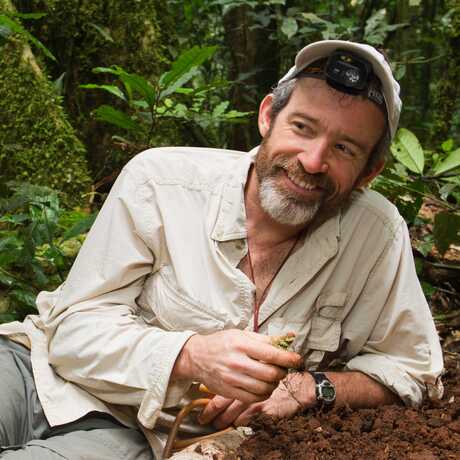Curator of Entomology, Patterson Scholar
I study the diversity and evolution of ants. In particular, I am interested in uncovering the diversity, origin, and radiation of ants across the southwest Indian Ocean. Concerns over deforestation on Madagascar led me to deploy Malaise traps with metabarcoding to monitor 50 forest sites. We also study how edible insects can be farmed at scale to alleviate pressure on endangered habitat while supplementing local diets.
I enjoy field trips to remote forests to uncover new ant species. In Madagascar, we have discovered over 1,000 new ant species that students, postdocs, and collaborators have been busy describing and documenting. We are now using the 25 years of field data and species work to research the origin and radiation of the ants on Madagascar. To put this phylogenomic work on Madagascar ants in context, we are now involved with the Ants of World project to understand the phylogeny of all ants. Our lab manages two valuable online resources that are essential for carrying out global projects on ants: AntCat and AntWeb.
While researching insects in Madagascar, I realized that little time remains to save its tropical rainforests. Our lab decided to expand our work to explore new semiautomated ways to monitor insect biodiversity across Madagascar. We currently have 50 Malaise traps across Madagascar that we sample weekly and use metabarcoding techniques to monitor change in the forest communities. This work is based out of our lab in Madagascar housed at the Madagascar Biodiversity Center.
On top of this environmental threat, the Malagasy people are facing a severe malnutrition crisis, and animals, such as the lemur, are widely hunted and now endangered. As a result, we launched the Insects and People initiative in Madagascar to farm native and edible insects. Our project, Breakfast before Conservation, began producing cricket powder for famine relief, school lunch programs, and health clinics in Madagascar in 2018. By leveraging the Malagasy tradition of eating (surprisingly tasty) insects, the farming facilities can produce a reliable source of nutrition with a smaller environmental footprint and create jobs for its citizens, all while saving the lemur and precious regional rainforests.
More about Brian's research and outreach at:
Fisherlab.org
Ant Course
ResearchGate
Google Scholar
Insects and People
Madagascar Biodiversity Center
antweb.org, antcat.org
